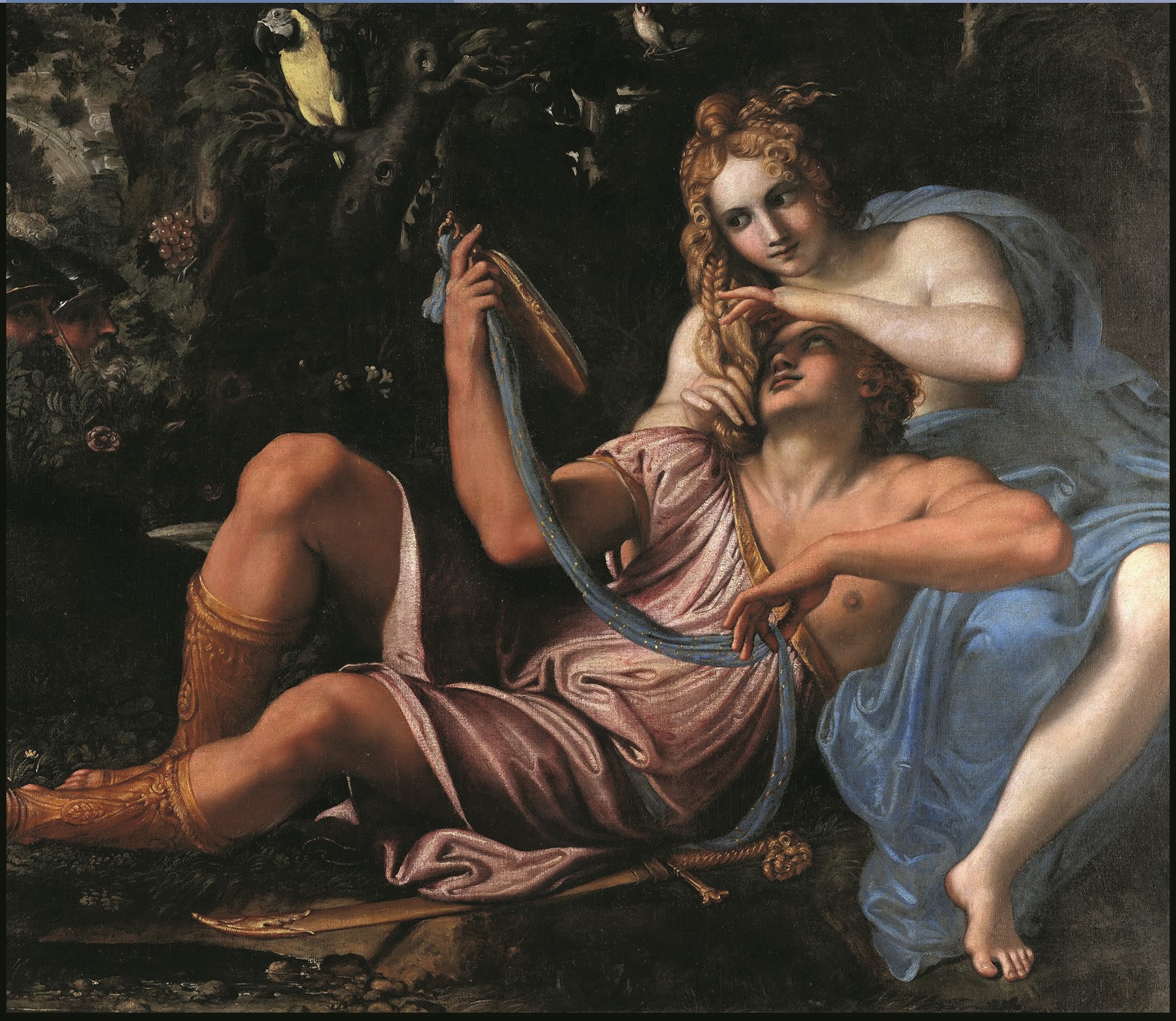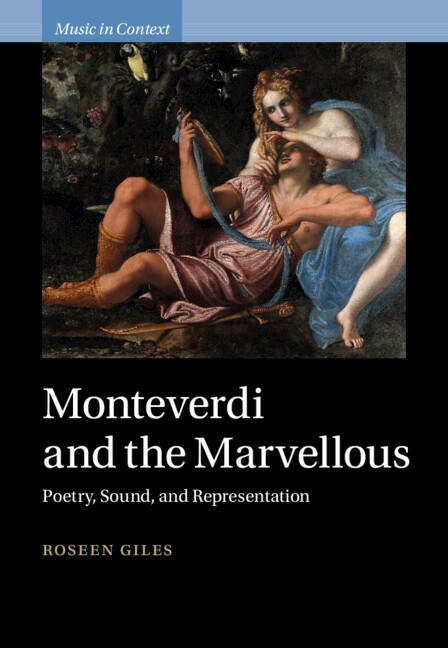
How do we learn to listen? Like most worthwhile things, listening well takes time, practice, and perseverance. While it might seem like good music ought to reveal its fruits intuitively to curious listeners, even the most visceral and immediate connection to music is a complex interchange of expectations and experiences. The most skilled composer guides their listeners’ ears in the same way that a painter guides the eye: they may not tell us exactly what the art ‘means’, but they can show us the way to engage it in their own mode and medium. Such is the case with one of the most prolific and influential musicians of the early seventeenth century: Claudio Monteverdi (1567–1643).
Music of the past can present unique challenges to meaningful listening. Its style, language, and instrumentation may seem remote and unfamiliar to modern listeners. But this music nevertheless offers us rare glimpses into the lives of men and women centuries ago. It suggests to us that, despite living in very different worlds, we nevertheless share basic human concerns with the people of the past. The unfamiliarity of style and expressive language we may hear in historical music allows us, rather unexpectedly, to connect with those that created it; this happens not despite, but precisely because musicians of the past expressed these basic concerns differently. Marvel, wonderment, and curiosity work through this kind of representational paradox. That which astonishes and leaves us in a state of wonder is unfamiliar and even overwhelming, but it propels us into new understandings and instils in us a desire to understand. It is both humbling and enlightening, divine but very human. Such an engagement with music tends to encourage a particularly constructive kind of sympathy towards those who came before and will come after us. In other words, it is a kind of experience which situates us in the past, present, and future. Listening to the music of the past is particularly apt for bringing about this sense of wonderment since it is written by people long dead but performed, transformed, and revived by musicians of the present. The marvellous in music is therefore intimately connected with reinterpretation, revival, and new understandings revealed in real time. The kind of music that sounds the unexpected, troubles expectations, and represents the ambiguities of human experience is, in this sense, the catalyst to building connections with the past and present. It can push us to realize that fundamental human needs and experiences may be the same, even if expressed through very different media. To ‘see’ the world through the ears of another can encourage compassion in the broadest sense, and is therefore medicinal, musically speaking.
Monteverdi and the Marvellous: Poetry, Sound, and Representation is a study of Claudio Monteverdi’s music and the way it guides listeners’ thoughts and emotions in unexpected and revealing ways. Monteverdi was masterful in his ability to negotiate storytelling with emotional interiority, simplicity with complexity, rationality with irrationality. He would use the unique materials of music to represent the plurality inherent to human consciousness, to lead his listeners to unexpected resonances by traversing sense and perspective and, perhaps most marvellous of all, to stretch and compress perceptions of time through polyphony. The poetics of the marvellous (or meraviglia) was one of the most important representational strategies of the art, literature, and music of the early seventeenth century. But it can also inform our engagement today with the music of that time, music which, as Monteverdi’s music exemplifies, continues to inspire generations of performers and listeners. The fundamentally human consequence of instilling wonder through music that I have suggested was my primary motivation for writing this book.
The appeal of Monteverdi’s vocal music is, I argue, related to his way of placing the materials of poetry and music into concert one with the other. This may explain why musicians continue to find Monteverdi inspiring, intriguing, and capable of speaking to listeners in new and meaningful ways. It is therefore not surprising that Monteverdi’s music is some of the most recorded and re-recorded in the early music repertory. Recently, there has been a steady stream and occasional flurry of Monteverdi recordings including (but by no means limited to) those of the composer’s sacred music by Ensemble Pygmalion, of opera by the Monteverdi Choir and Orchestras, and, perhaps most relevant for the focus of my book, important recontextualization of Monteverdi’s madrigals by ensembles such as La Compagnia del Madrigale, Les Arts Florissants, Le Poème Harmonique, and Concerto Italiano.
As the most ephemeral of the arts, music of centuries past can be illusive and occasionally difficult to engage. Its very transience is also, curiously, what makes it so rewarding to hear. Monteverdi’s music has a wondrous capacity to express the emotional plurality of the human experience and the paradox of our parallel desires for rational understanding and irrational sensuality. There is also something very generous in the way Monteverdi seems concerned with the way his audiences—past, present, and future—may hear, feel, and think as they listen. To hear something of yourself echoing in the music of the past is perhaps the most profound way which we may marvel at music.

Latest Comments
Have your say!